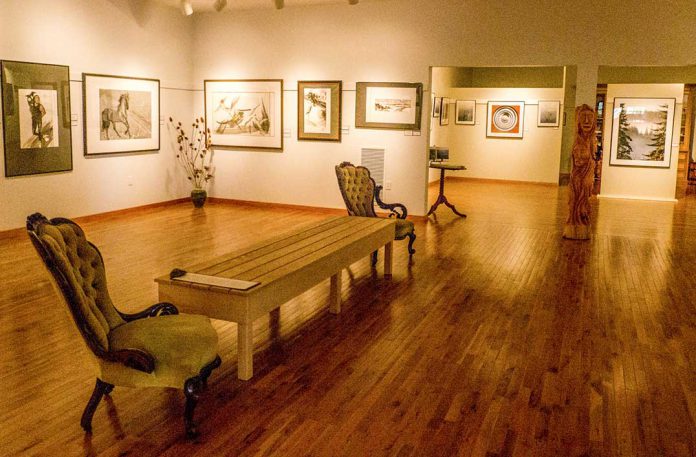Seven running for position of Wiikwemkoong chief in Saturday election
WIIKWEMKOONG—The 2018 Wiikwemkoong Unceded Territory election for this Saturday, August 18 will see seven names on the ballot: Jeffery Eshkawkogan, Bernadine Francis, Ronnie Joseph Odjig, Duke Peltier (incumbent), Rosemary (Rose) Shawanda (Wemigwans), Marcia Trudeau-Bomberry and Gladys Wakegijig.
The 45 candidates who will stand for the 12 positions on band council include: Amy Assinewai, Robert Corbiere, John James Lee Augustin Dube, Lawrence Enosse (inc.), Jeffery Eshkawkogan, Mark Raymond Eshkawkogan, Peter (Peach) Eshkawkogan, James K. Fox, Lorraine A. Fox (inc.), Bernadine Francis (inc.), Robin George, Raymond J. F. Jackson, Christopher (Shidock) Johnston, Raymond (Gerry) Kaboni, Marilyn S. Kimewon, Wanda Darlene Christine Kimewon, Daryl King, Francis Mandamin, Gertrude Manitowabi, Margaret Tish Manitoawbi (inc.), Maureen Elizabeth Manitowabi (inc.), Peggy Sue Manitowabi, Rachel E. Manitowabi (inc.), Rolanda Manitowabi, Michael (Eshkibok) McCormick, Stitch O’Gitchitaa (Manitowabi), Tim Ominika (inc.), Jason Peter Oshkabewisens, Marlene Mona Oshkabewisens, Jean Oshkabewisens (Trudeau), Brian D. Peltier, Chuck Peltier, Ian J. Peltier, Catherine R. Pitawanakwat, Cecilia J. C. Pitawanakwat-O’Connor (inc.), Sylvia Recollet (inc.), Jacinta Solomon, Adolphus I. Trudeau, Howard B. (Small Boy) Trudeau, Marcia Trudeau-Bomberry, Sheri Wabanosse, Gladys Wakegijig (inc.), Daniel (Sonny) Wassengeso, Madeline Loretta Wemigwans and Phyllis Williams.
The Wiikwemkoong Electoral Officer for the 2018 is Vaughn Johnston. The electoral office telephone number is 705-849-8072 or 866-286-7130.
The Expositor reached out to all running for chief and were able to contact everyone with the exception of Bernadine Francis and Jeffery Eshkawkogan. Their platforms follow below.
Ronnie Joseph Odjig
by Michael Erskine
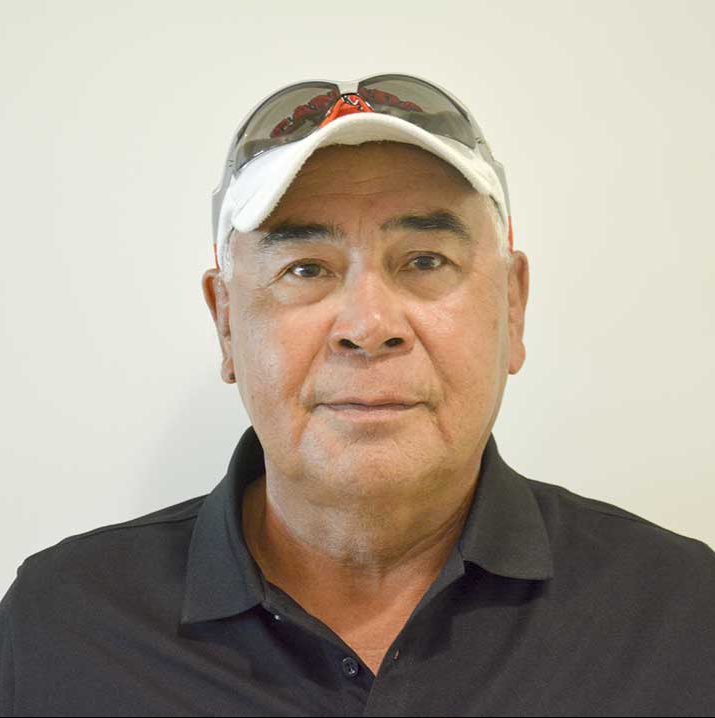 “We generally are only civil servants, not legislators,” notes Ron Odjig, who is running for chief of the Wiikwemkoong Unceded Territory. “We make policy and move allotments of money to the areas where it is needed. We are not initiated at the bureaucratic level.”
“We generally are only civil servants, not legislators,” notes Ron Odjig, who is running for chief of the Wiikwemkoong Unceded Territory. “We make policy and move allotments of money to the areas where it is needed. We are not initiated at the bureaucratic level.”
When it comes to the key issues, Mr. Odjig said that he hears a lot from the membership concerning social welfare. “It is not what it should be in this day and age,” he said.
“Education should be returned to its original mandate,” continued Mr. Odjig. “True attendance is terrible. We have to grow confidence back in our education system. We need education, not politics.”
Another issue Mr. Odjig sees coming to the fore is the conflict generated by having too many band administrators installed at the decision making level. “It’s a conflict of interest,” he said, noting that having department heads in charge of divvying up the band resources is a recipe for disaster. When it comes to dealing with the issue, nothing seems to happen. “You hear about it, but nobody does anything about it.”
“I feel that every council has been running like a bad student council,” said Mr. Odjig. “Everything is dictated by the teachers, not generally what the elders want.”
The land claims negotiations have been moving at a snail’s pace, he noted. “That’s to be expected, but we have to stay focussed with that as a political group and not become preoccupied with micromanagement.”
Mr. Odjig cites his education as a political science major as a solid base from which to manage those negotiations. “I feel embarrassed with the way things are operating,” he said, citing “the terrible influence that is coming from the outside.” He suggested “the community is operating with bad information” being supplied by outside agencies. “Our people deserve better,” he said.
On another front, Mr. Odjig observed that the community is suffering from a great deal of lateral violence. “That has to stop,” he said. “I will stop it.”
“Let our professionals do their job,” he continued. “There are too many politicians interfering when they have no idea what the job entails.”
“Too many decisions are being made on the basis of gossip and ignorance,” added Mr. Odjig.
Mr. Odjig said he has garnered a solid amount of experience, in both business and governance through his work and educational experience and his connections to the community have been strengthened with his volunteer experience.
“At my stage of life I feel I have an obligation to contribute to my community,” he said of his decision to run. “If anyone wants to discuss my candidacy further, well people know where I live.”
Mr. Odjig invoked the elders who have instructed him over the years as a solid basis from which to embark on community service. “Elders like Will Peltier, Ron Wakegijig and Sam Osawamick.”
Mr. Odjig said he believes that it is time to advance the business of the community and to do “due diligence” so that “we never have to embarrass any of our members. Otherwise it is just another smear campaign. We have to make changes so we can allow people to contribute to the community. We can’t be cutting each other down.”
Duke Peltier
by Michael Erskine
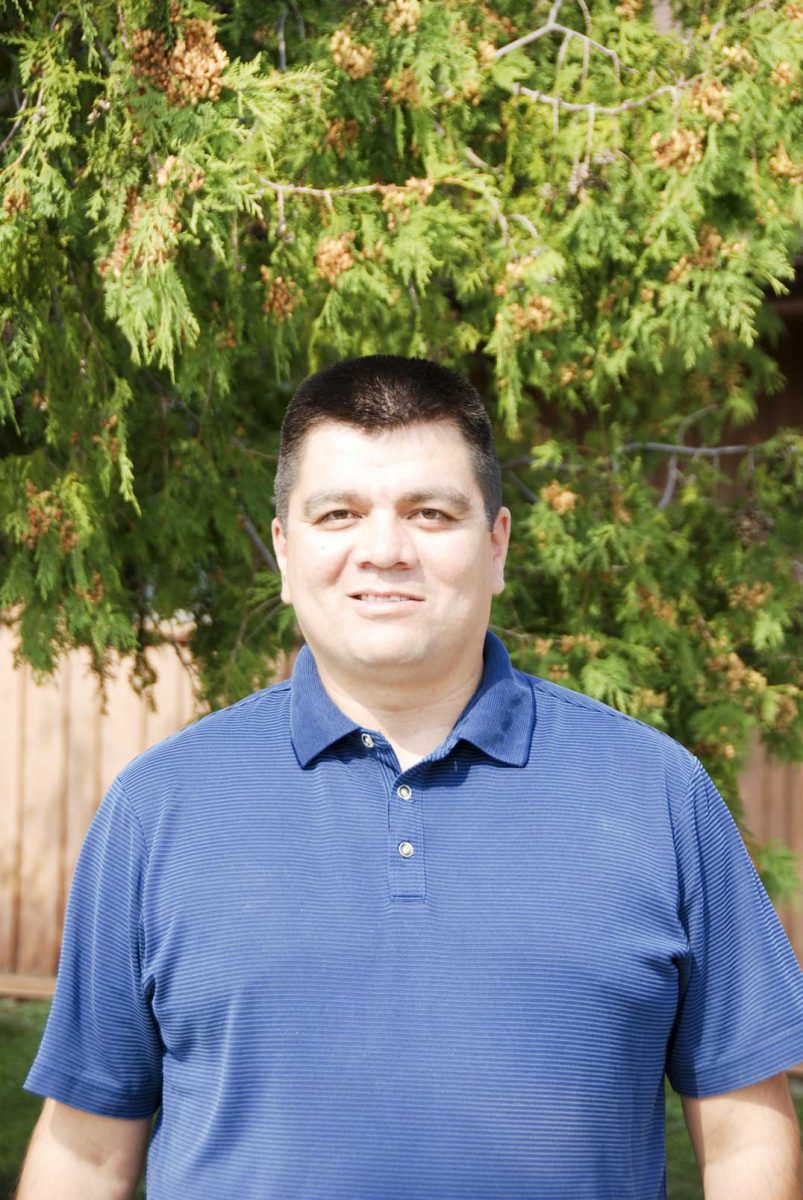 Ogimaa Duke Peltier is once again running for chief of the Wiikwemkoong Unceded Territory. “I have been asked to keep going and I said ‘okay’,” he said.
Ogimaa Duke Peltier is once again running for chief of the Wiikwemkoong Unceded Territory. “I have been asked to keep going and I said ‘okay’,” he said.
“A lot of goals have been accomplished,” said Mr. Peltier, “but many initiatives have been started and it is important to see them completed.”
Among the initiatives that will be ongoing is housing in the community, and the new community greenhouse that is going to be attached to the high school will not only provide skills once it is complete, but those skill sets being developed by community members will add greatly to the community’s wellspring of expertise. “The greenhouse construction will provide hands-on experience to community members in areas that will be increasingly important to coming generations,” he said.
A women’s shelter is being built in Wiikwemkoong, providing security to those women fleeing domestic violence. “The shelter itself is one of six going up in Canada,” said Mr. Peltier. “We finished the footings last week and the walls are going up shortly. September should see the start.”
Mr. Peltier acknowledges that some in the community have concerns about the amount of time spent away from the community, but he notes that realistically that is unavoidable if you want to get things done.
“It is part of the role,” he said. “Being an advocate for the community, for the staff members, you have to be there to provide the political support and push to get the resources needed to get things done. The people you need to see are in Ottawa and Toronto.” In a perfect world those people would be coming to Wiikwemkoong and Mr. Peltier could stick closer to home and his young family.
Even conference calls can’t fill the bill. “It is hard to take stock of the people on the other side of the table in a teleconference,” he noted. “You need to be able to read the people you are dealing with.” That takes both experience and a face to face encounter to get right. “You can’t read people the same way unless you are face to face. You see how they react to what you are saying and you adjust accordingly.”
Mr. Peltier is particularly impressed with what is being accomplished through the Challenge4Change program and the integration of technology with the traditional resources and elders in the community. “We are building language resources that people can access at any time of the day or night,” he said. “Whether you are young or old, not everyone has the language or a grandparent who can help. Part of the vision is to be able to make those resources available.”
Mr. Peltier stressed that a leader in the community is only as good as his team and that it is important to recognize and support that team in order to help move community goals forward.
Rosemary (Rose) Shawanda
by Warren Schlote
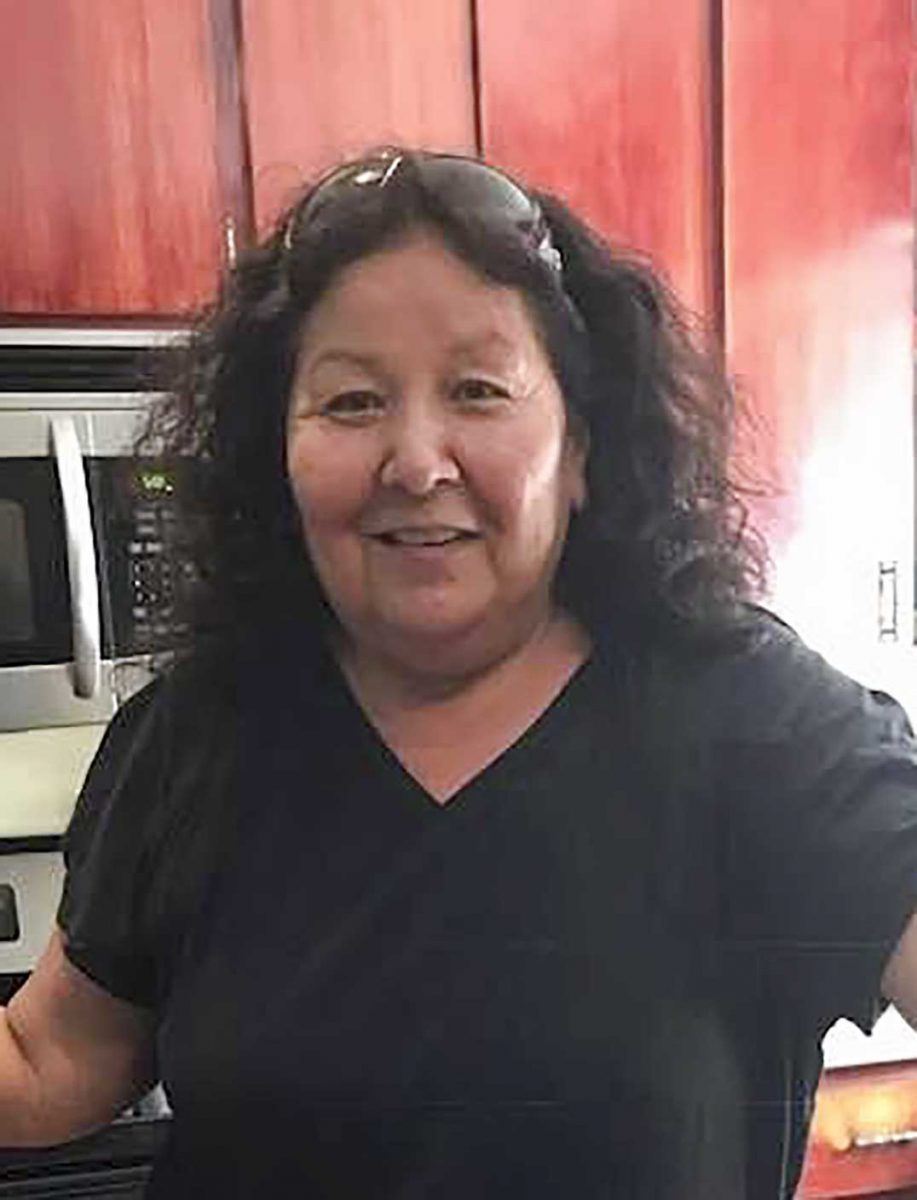 “The health and well-being of the community is important to me,” says Rosemary (Rose) Shawanda, one of the seven people who are vying to become chief of Wiikwemkoong Unceded Territory.
“The health and well-being of the community is important to me,” says Rosemary (Rose) Shawanda, one of the seven people who are vying to become chief of Wiikwemkoong Unceded Territory.
“When people are feeling good about themselves there’s courage to go to school and try different things,” says Ms. Shawanda.
That connects to Ms. Shawanda’s platform focus of strengthening future generations. That extends to maintaining Indigenous sovereignty, title and rights, as well as clarifying misconceptions about government assistance and taxation systems on reserves.
Ms. Shawanda believes in asserting Wiikwemkoong’s sovereignty to save the cost and time associated with negotiations.
“Our First Nations are busy negotiating all the time; what they need to say is ‘this is what we need, hand it over’.”
Accountability is a word that Ms. Shawanda features heavily. To encourage dealing with drug and alcohol issues, she wants to include drug testing for the chief and council so they can set a drug-free example for the community to follow as a way of leading by example.
Her idea of accountability also extends to ensuring nepotism has no place within the government.
Ms. Shawanda wants to “really encourage small businesses to use this reserve for what it’s worth: for the use and benefit of us.” As an entrepreneur herself, she knows the realities of starting a business. Ms. Shawanda and her husband produce maple syrup, maple sugar, apple cider vinegar and eggs. They also keep bees and operate a rainbow trout farm.
In the entrepreneurial spirit, she believes in reducing the shipping of the community’s garbage. Instead, she wants to improve Wiikwemkoong’s recycling and waste management services to keep more jobs in the community.
Although she is new to public politics, Ms. Shawanda has a wealth of experience working in healthcare, community support services, education and entrepreneurship.
It was not until she moved to North Bay to attend high school that she began to learn about her own Indigenous culture.
“I was always involved in the lives of aboriginal students. Talking to them, learning more about them, finding out about how life is on their reserve and in their community,” she says.
That cultural interest soon turned into a greater focus on community and political organizations.
“I was going to make sure I knew every Native student over here. I had my four years to do it, and I did. I became involved in being president in student groups at high school,” says Ms. Shawanda.
She became interested in learning how reserves operate and soon completed a degree in political science at Lakehead University. Education in forest firefighting, food sovereignty and recreation and leadership are some of the other areas in which Ms. Shawanda has since received education.
Marcia Trudeau-Bomberry
by Michael Erskine
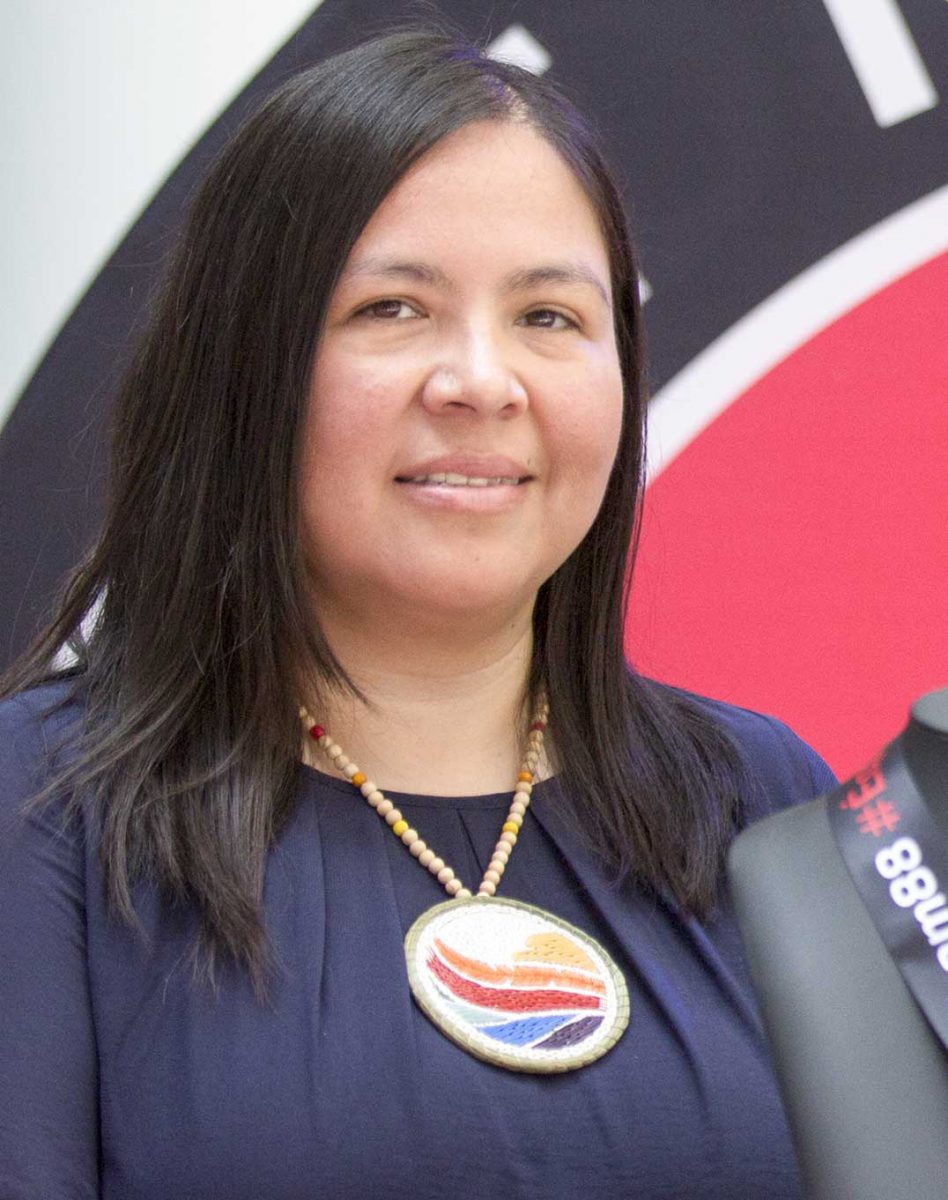 Marcia Trudeau-Bomberry has a vision that “prioritizes health and safety, building our economy and protecting our environment.” She identifies her values as “centred on culture, community and commitment.”
Marcia Trudeau-Bomberry has a vision that “prioritizes health and safety, building our economy and protecting our environment.” She identifies her values as “centred on culture, community and commitment.”
Ms. Trudeau-Bomberry said that there “is much work to be done here in Wiikwemkoong, and our community has a wealth of knowledge, talent, the heart to get things done and we need to reach out to our members and get everyone moving in the same direction.”
The candidate for Wiikwemkoong chief said a key element in successfully doing that is to set benchmarks and take stock of what is working. “I would want to measure progress as we move forward and to track advancements in the community. How many more jobs have been created? How much more funding or additional resources has been sourced for the various programs/services/initiatives in the community? How have our stats gone up or down for key areas? Has our quality of life index improved?”
The key, she said, is “communicating and engaging with our membership and getting everyone working together.”
As to challenges for the community moving forward, Ms. Trudeau-Bomberry has a clear vision.
“Like other communities on the Island and in rural Ontario, financial security and food security are areas that are challenging, and so is health and safety.”
“When we talk about health and safety there are a host of challenges including: recruiting and retaining medical professionals, keeping our children and youth safe from the harms of drugs and substance abuse, ensuring our first responders (police, paramedics and firefighters) are supported in the work that they do. For Wiikwemkoong, in addition to those challenges, we continue to deliver a host of services to a growing band membership in a consistently underfunded system.”
The Anishinaabeg of Wiikwemkoong take pride in their rich culture and history, notes Ms. Trudeau-Bomberry. “Yet we also need to work hard to ensure language retention and increase fluency and work to integrate traditional knowledge throughout all areas of our way of life.”
As to her main theme, Ms. Trudeau-Bomberry identifies “commitment.”
“I am committed to openness and transparency, to being accessible to band members and to rolling up my sleeves and working hard,” she said. “The same way I did when I was a new mother with two young daughters and working to finish a masters degree in business and the same way I did when I was CEO and worked with and led a team to deliver and set a high benchmark for a major international Indigenous sport and cultural event. When you have worked hard and done well, and have had access to opportunities, it is important to do your best to give others access to opportunities too.”
As to her main strengths, Ms. Trudeau-Bomberry identifies “An ability and desire to communicate with band membership and to be a proactive leader. To me this means not waiting for things to happen, but to do the hard work of being prepared,” she said. “It means creating education and awareness initiatives about a range of topics that include, but aren’t limited to: food security and nutrition, community safety, the environment and recycling. It means beginning difficult conversations about upcoming cannabis legislation and what that means for our community. It means not waiting for federal laws to be created on Indigenous languages before we come up with our own plan on Anishinaabemowin. It means looking at ways that we enshrine and integrate the language into all aspects of life in Wiikwemkoong. A principled approach rooted in Anishinaabeg values, commitment to community through volunteerism, an experienced leader and a broad, yet relevant educational background, in business and communications are all strengths that I bring.”
Gladys Wakegijig
by Michael Erskine
 “This is to inform you that I have been nominated for both the chief and band councillor positions for the upcoming Band Election of Saturday, August 18,” writes Ms. Wakegijig in an election brochure forwarded to The Expositor. “After careful consideration I have decided to let my name stand for the band council position.”
“This is to inform you that I have been nominated for both the chief and band councillor positions for the upcoming Band Election of Saturday, August 18,” writes Ms. Wakegijig in an election brochure forwarded to The Expositor. “After careful consideration I have decided to let my name stand for the band council position.”



